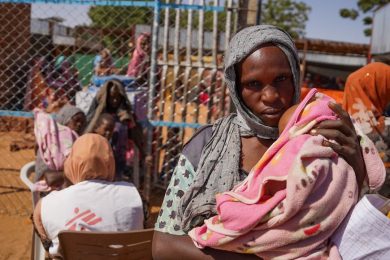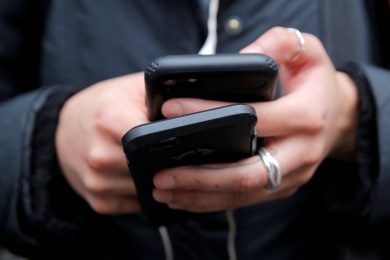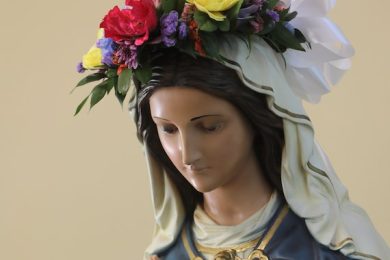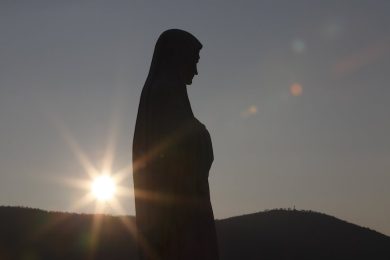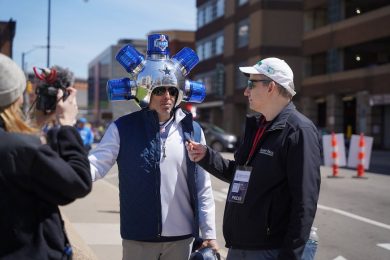Dear brothers and sisters in Christ,
Are you ready to cast your ballot on Election Day, Nov. 3? Some Minnesotans are already participating in early voting.
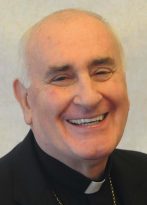
This election cycle has been especially contentious, and I understand why some people are tempted to tune out from the messiness of today’s politics. But, as Catholics, we need to be engaged in these public conversations because the future of our families, communities and nation depend on it.
Our Catholic faith teaches us that responsible citizenship is a virtue, and participation in political life is a moral obligation. Voting with the aim of protecting human life, promoting human dignity and advancing the common good of all God’s children helps to make the world a better place. It is a way to answer Christ’s command to “love one another” (John 13:34).
Many Catholics look to the Church for guidance in making their voting choices. Some seek strong statements from me or their pastors about whom to vote for or against. But neither I nor your pastors can tell you how to vote. Voting is a decision left to each individual. It should be the culmination of a longer process of education and discernment during which you properly form your conscience so you can make good decisions regarding the public policies and moral issues at stake in the election.
This requires hard work because there are many issues and challenges that demand our attention. But this is where the Church can help. A good place to begin is by reading and reflecting on the U.S. bishops’ document “Forming Consciences for Faithful Citizenship: A Call to Political Responsibility.” This document is updated every four years in the lead-up to the presidential election. It gives a good explanation of Catholic social teaching, what our voting responsibilities are, and the moral dimensions of major issues facing our country.
Forming our consciences properly, as the document outlines, requires a sincere desire to embrace goodness and truth, a willingness to seek this truth by studying Scripture and Church teaching, learning the facts about the choices we face, and then praying and reflecting to discern God’s will. This process reflects the reality that our participation in political life should be influenced by our faith, not the other way around.
Respect for the human dignity of every person, no matter their stage of life, color of their skin or their abilities is at the heart of faithful citizenship. We bishops have identified abortion as a preeminent priority because it is a direct attack on human life. But this doesn’t mean we can ignore other serious threats to human life and dignity, including racism, poverty, the death penalty, threats to the environment, and unjust immigration policies that divide families. Not every issue carries the same moral weight, but many are linked to the “throwaway culture” that Pope Francis asks us to resist and replace with a culture of life, mercy, hope and justice. As voters, we must account for all of these issues and concerns when we cast our ballots.
Our diocese has many voting resources available to assist you in preparing for Election Day. This includes downloadable copies of the “Faithful Citizenship” document in both English and Spanish, parish guidelines for political activity, an election novena, and a host of other resources from the Minnesota Catholic Conference (MCC) and U.S. Conference of Catholic Bishops (USCCB). Links to all of these resources can be found on our diocesan website at www.stcdio.org/faithfulcitizenship. I encourage parishes to download some of these resources and share them with parishioners who might not have access to the internet.
It is important for pastors and parishes to only use voting resources that are on the diocesan website or otherwise approved by the diocese, MCC or USCCB. Parishes should not authorize the distribution of partisan political materials on parish property.
Please demonstrate your Christian values in the way you conduct yourself and your political conversations now and in the future. My hope is that we Catholics can be a leavening influence on the division and polarization so apparent in today’s political climate by being good role models of civility as we talk with our neighbors and fellow parishioners — in person and on social media. I encourage you to join the USCCB’s “Civilize It” campaign and take the civility pledge, which also is available on our website.
These next few weeks are a good time to study or revisit the major issues facing our nation, state and local communities and to reflect on them and the candidates through a Catholic moral lens in preparation for voting. And, please remember, the responsibilities of faithful citizenship don’t end with Election Day. No matter which candidates we vote for, or which ones win or lose, we must continue our ongoing efforts to hold our public officials accountable for protecting life, promoting human dignity and advancing the common good.
Every individual is responsible for making their own voting choices. Please do so thoughtfully and with a properly formed conscience.
Sincerely yours in Christ,
+Donald J. Kettler
Bishop of Saint Cloud






